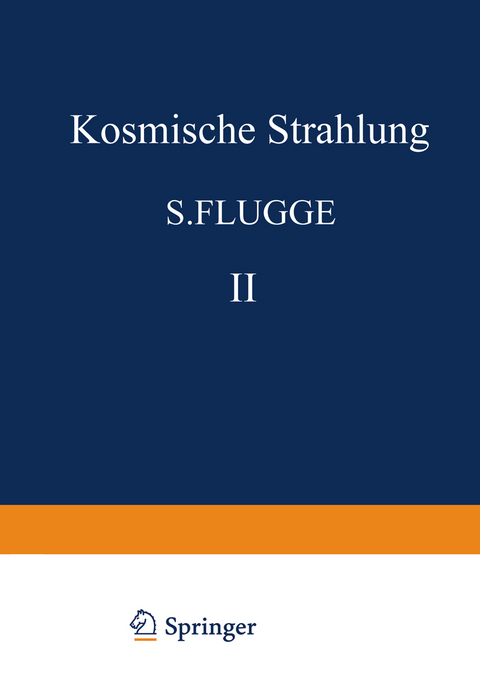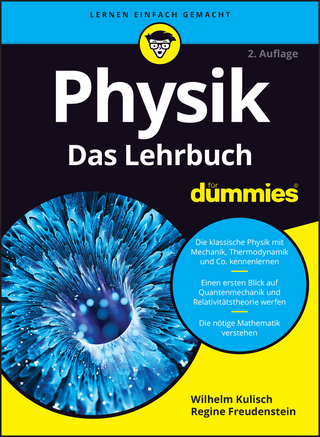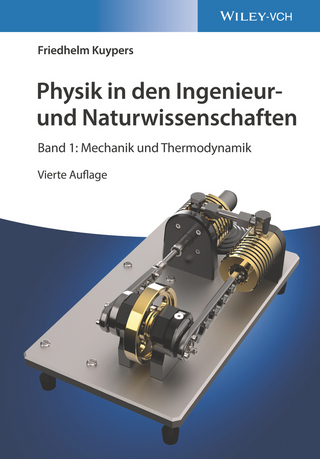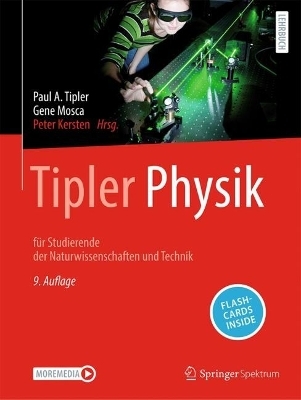
Kosmische Strahlung II / Cosmic Rays II
Springer Berlin (Verlag)
978-3-642-46081-4 (ISBN)
Theory of Cascade Showers.- A. Introduction.- B. The elementary processes.- C. The diffusion equations for electron showers, and the limitations of the approximations.- D. Behaviour of the shower functions and elementary solutions.- E. One-dimensional electron shower theory.- F. Three-dimensional electron shower theory.- G. Application of the theory to the shower phenomena.- References.- Cosmic Rays and High-Energy Physics.- I. Discovery of multiple production.- II. Direct observations of high-energy interactions.- III. Behaviour of high-energy cosmic rays.- IV. Models of multiple production.- V. Summary of cosmic-ray information.- References.- The Spectrum and Charge Composition of the Primary Cosmic Radiation.- I. Introduction.- II. Solar influences on the spectrum.- III. Spectrum of the total radiation.- IV. The spectrum of the singly charged component.- V. The spectrum of the helium component.- VI. Nuclei heavier than helium.- VII. The spectrum of the L nuclei.- VIII. The spectrum of the S (M + H) nuclei.- IX. Intensity and spectrum of the electronic component.- X. Charge composition and spectrum of the cosmic radiation between 30 and 10000 GeV.- XI. The energy spectrum of the total radiation at energies > 1014 eV/Nuc.- XII. Detailed charge features of the radiation.- XIII. A comparison of the spectra of the different charge groups.- XIV. Astrophysical consequences of the above results in relation to the acceleration and propagation of cosmic rays.- References.- High Energy Photons and Neutrinos from Cosmic Sources.- I. Introduction.- II. Production in the interstellar gas, the galactic halo, and the intergalactic medium.- III. Discrete sources of high energy photons.- IV. Neutrino sources.- V. Conclusion.- References.- The Time Variations of the Cosmic Ray Intensity.- I. Introduction.- II. Geophysical effects of cosmic radiation.- III. Experimental evidence on the modulation mechanism.- IV. Modulation mechanisms.- References.- Nukleonen in der Atmosphäre.- A. Einleitung.- B. Die Primärkomponente der kosmischen Strahlung.- C. Kernwechselwirkungen der Nukleonen-Komponente in der Atmosphäre.- D. Protonen in der Atmosphäre.- E. Neutronen in der Atmosphäre.- Anhang 1: Kosmische Strahlung - Registrierstationen.- Anhang 2: Das Erdmagnetfeld; geomagnetische Koordinaten; spezielle Wahl.- Literatur.- Cosmic Ray Produced Radioactivity on the Earth.- A. Introduction.- B. Corpuscular radiation.- C. Production of isotopes in the atmosphere.- D. Terrestrial isotopes of non-atmospheric origin.- E. Circulation of isotopes in the geosphere.- F. Some important observations on cosmic ray produced radio nuclides in the geosphere.- G. Appendix.- References.- Effects of Cosmic Rays on Meteorites.- Course of radiation in a meteorite.- History of meteorites.- Secular equilibrium.- Time variations.- Meteorite samples.- Measurement.- Cosmic-ray age.- Production rates.- Recovered artificial satellites.- References.- Sachverzeichnis (Deutch-Englisch).- Subject Index (English-German).
| Erscheint lt. Verlag | 18.4.2012 |
|---|---|
| Reihe/Serie | Handbuch der Physik Encyclopedia of Physics | Kosmische Strahlung / Cosmic Rays |
| Zusatzinfo | VIII, 654 p. |
| Verlagsort | Berlin |
| Sprache | englisch |
| Maße | 170 x 244 mm |
| Gewicht | 1132 g |
| Themenwelt | Naturwissenschaften ► Physik / Astronomie ► Allgemeines / Lexika |
| Naturwissenschaften ► Physik / Astronomie ► Astronomie / Astrophysik | |
| Schlagworte | Cosmic Ray • Kosmische Strahlung • Radiation |
| ISBN-10 | 3-642-46081-X / 364246081X |
| ISBN-13 | 978-3-642-46081-4 / 9783642460814 |
| Zustand | Neuware |
| Haben Sie eine Frage zum Produkt? |
aus dem Bereich


